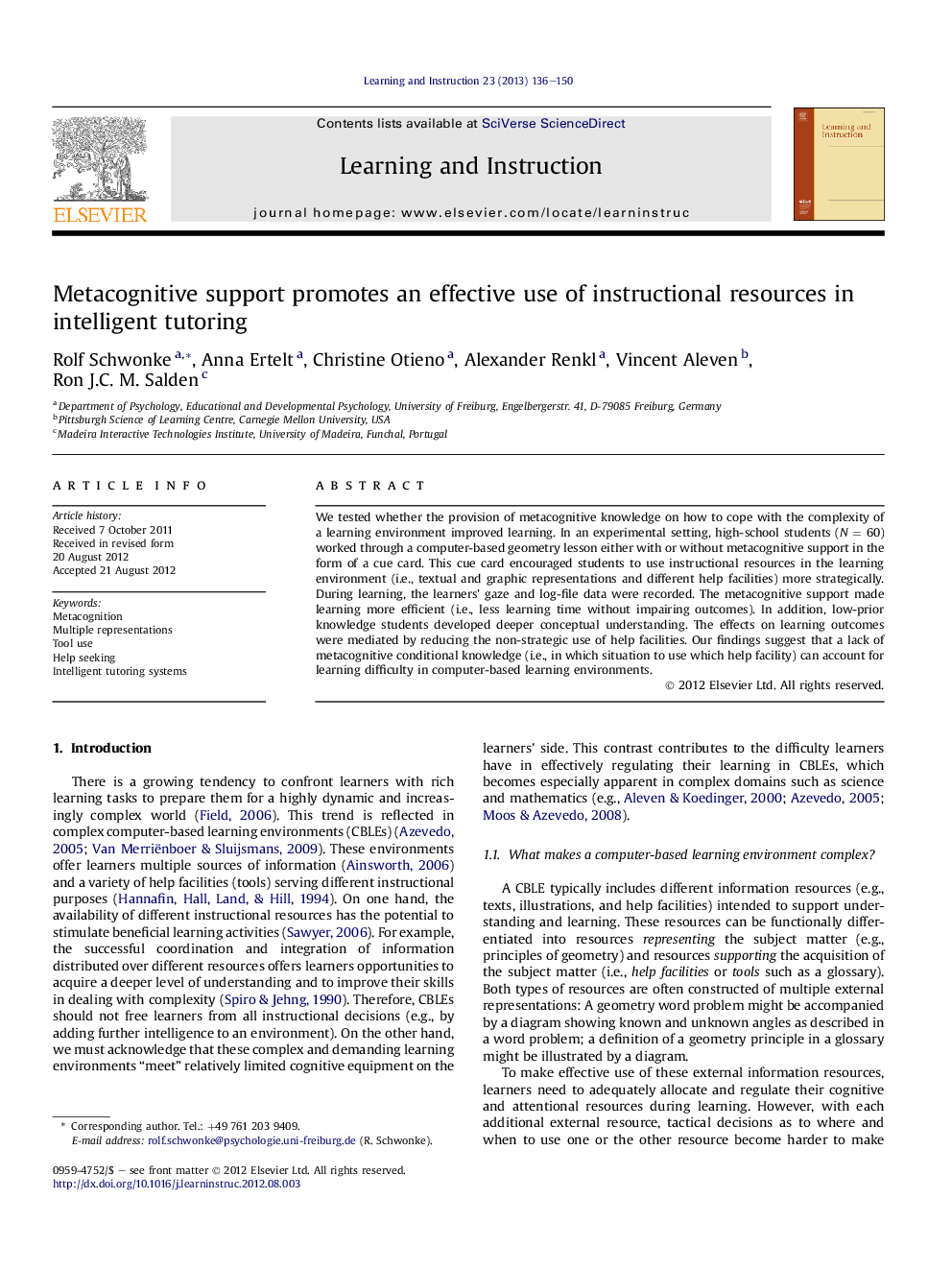| Article ID | Journal | Published Year | Pages | File Type |
|---|---|---|---|---|
| 365637 | Learning and Instruction | 2013 | 15 Pages |
We tested whether the provision of metacognitive knowledge on how to cope with the complexity of a learning environment improved learning. In an experimental setting, high-school students (N = 60) worked through a computer-based geometry lesson either with or without metacognitive support in the form of a cue card. This cue card encouraged students to use instructional resources in the learning environment (i.e., textual and graphic representations and different help facilities) more strategically. During learning, the learners' gaze and log-file data were recorded. The metacognitive support made learning more efficient (i.e., less learning time without impairing outcomes). In addition, low-prior knowledge students developed deeper conceptual understanding. The effects on learning outcomes were mediated by reducing the non-strategic use of help facilities. Our findings suggest that a lack of metacognitive conditional knowledge (i.e., in which situation to use which help facility) can account for learning difficulty in computer-based learning environments.
► Metacognitive support affects students' use of instructional resources and learning. ► Substantial reduction of learning time by parsimonious intervention (cue card). ► Reduction of non-strategic use of resources for low-prior knowledge students. ► Improvement of conceptual understanding for low-prior knowledge students. ► Effects are mediated by the reduction of non-strategic use of instructional resources.
